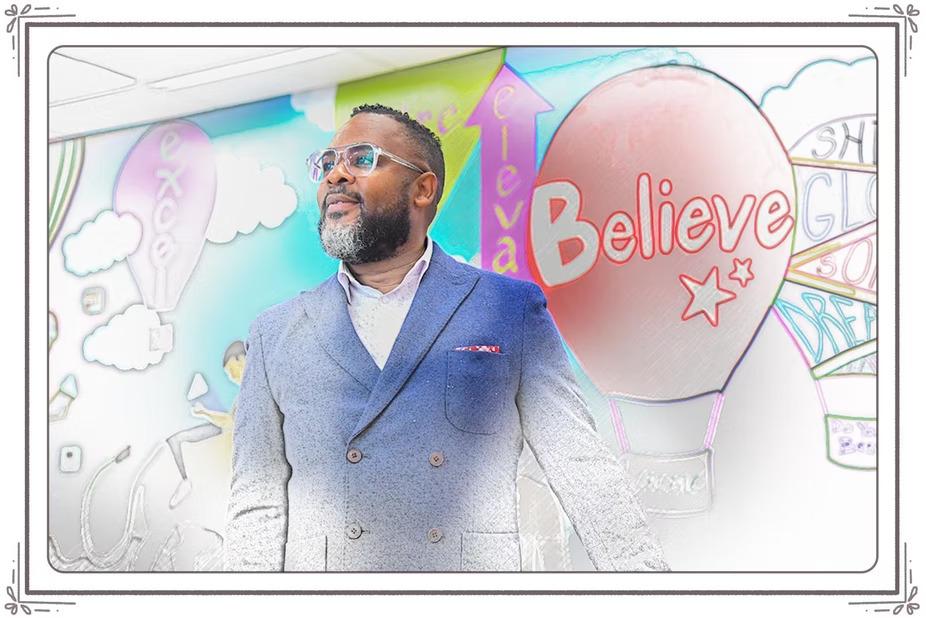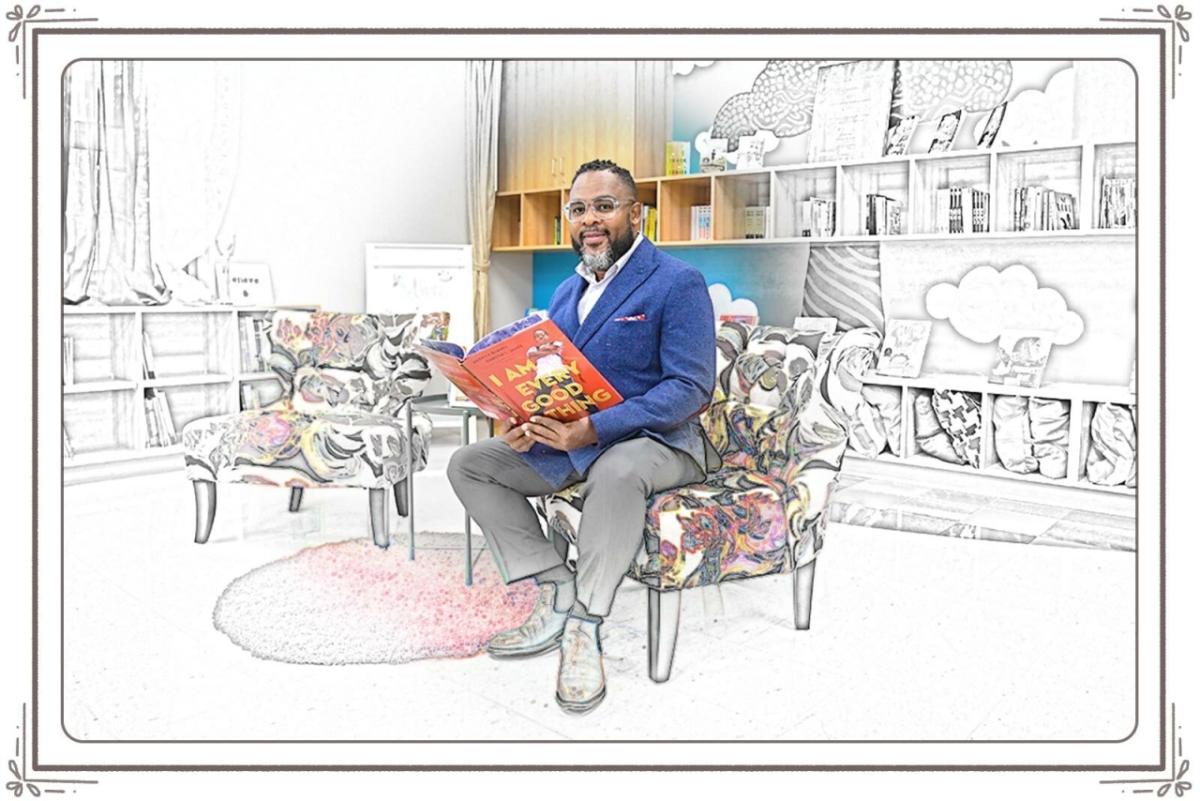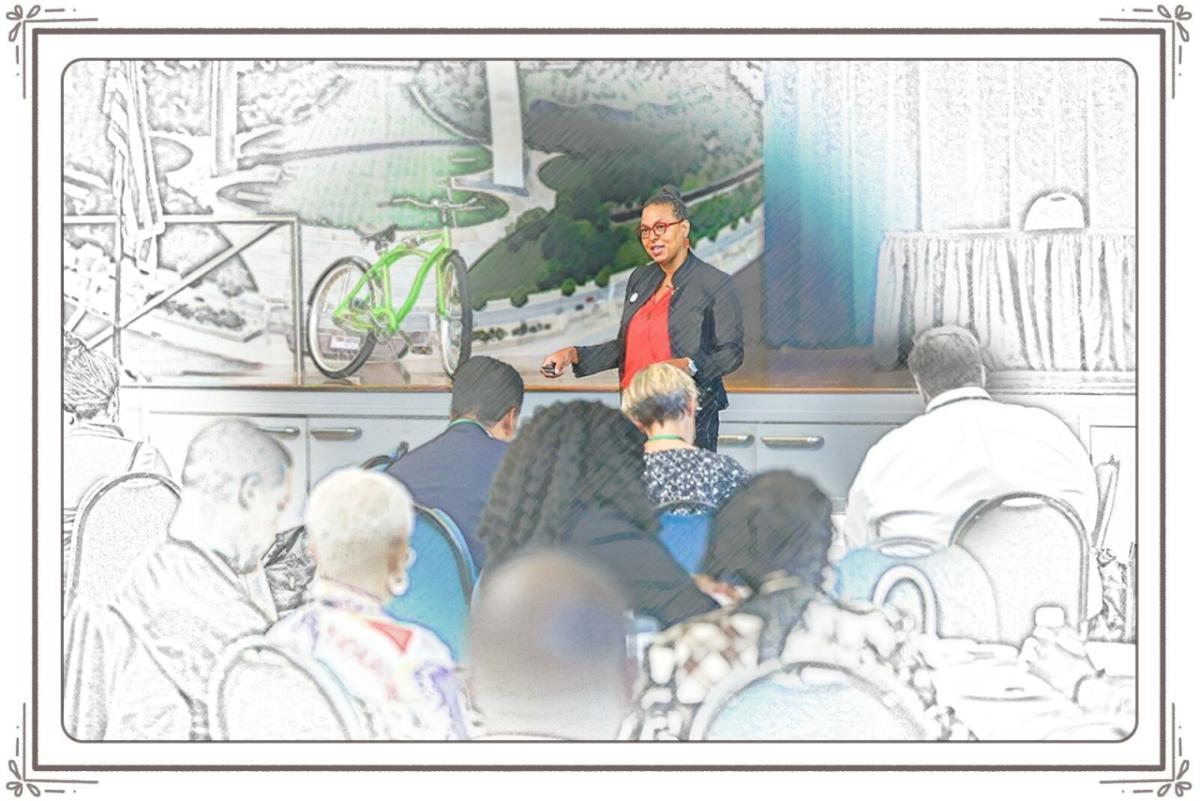Advancing Youth Literacy: You Better ‘Believe’ It!
How one entrepreneur called upon insights from a Regions-sponsored small-business program to shape his nonprofit’s story.
By Kim Borges
If belief were a superpower, Julius B. Anthony could stop a negativity train in its tracks and swat away obstacles like cheap toys in the wind.
Spend time with Anthony and you’ll quickly discover his can-do attitude makes things happen. So much so, that he even named the literacy labs he launched “The Believe Projects®” because they’re rooted in the idea that anything is possible if you simply believe.
“I never expected my life to be this,” said Anthony, describing his role in founding St. Louis Black Authors of Children’s Literature in 2018. Anthony leads the nonprofit dedicated to advancing youth literacy by providing free books to children featuring characters who look like they do. “To see this flourish so quickly, I’m still in the awe stage.”
But even those with superpowers who are flourishing sometimes find themselves in difficult situations where they need to call for back-up. Situations like a global pandemic.
“Because our business is school-based, I thought, ‘Oh, here we go, we’re about to shut down,’” recalled Anthony of COVID-19’s earliest days.
But not so fast, because Anthony had back-up that came in the form of insights from Inner City Capital Connections (ICCC), a Harvard-level education program for under-resourced small-business owners. Anthony attended an ICCC workshop in St. Louis in 2019. Regions Bank sponsored the program as part of its long-time community partnership with the Initiative for a Competitive Inner City (ICIC), a nonprofit focused on supporting entrepreneurs in under-resourced communities. Regions has worked with ICIC to also bring the tuition-free sessions to entrepreneurs in Houston, Tampa, Atlanta and, most recently, Indianapolis, among other cities. The program heads back to Houston this fall.
Anthony specifically called on guidance University of Illinois Chicago associate professor Susan Perkins provided during a marketing session at the St. Louis workshop.
“One of the things I learned through ICCC is to leverage relationships with larger companies to build your brand,” said Anthony, reflecting on Perkins’ presentation. “That was probably the most profound experience I had from that day. Using the power of branding, using the power of other’s brands to build your brand as well. It’s been great for us as a nonprofit because it’s helped us to rethink a different revenue model.”
The ability to rethink and reimagine business sustainability has been a key benefit ICIC has equipped ICCC course participants and alumni with since March of 2020.
“Through its unique combination of executive education, one-on-one coaching and access to capital, ICCC has been of tremendous value to thousands of small-business owners nationwide as they’ve coped with the pandemic, revised their strategies and are now emerging stronger,” said Steve Grossman, CEO of ICIC. “All alumni become members of our Inner City Alumni Network, which provides timely continuing education, technical assistance and networking opportunities at no cost. Alumni can also attend our annual conference where they meet fellow participants and gain critical insights that can benefit their businesses immediately and long-term.”
Anthony enlisted Perkins’ branding insights, swooping in to approach new corporate partners by sharing those who already believed in the nonprofit’s mission.
“Scholastic was our first major partner and that got us in the door,” explained Anthony. “PBS and IKEA were behind us as well. I used the information from that one session to build new, strong partnerships with organizations like the Salvation Army and Penguin Random House,” said Anthony.
And now, Nike is sponsoring The Believe Projects’ seventh literacy lab set to open in the Normandy School District this September.
But Anthony had even more plans in the works.
His second source of inspiration? Well, that came from an iconic television show Anthony recalled from his childhood, Mr. Rogers’ Neighborhood®.
“I had a thought of, ‘If we can’t take The Believe Project to children, how about we bring them to us virtually?’” he said.
Anthony decided to apply a modern-day twist to the classic program.
“Literacy is all around us,” said Anthony. “It includes music and dance and hip-hop. The elements were important. We wanted them to be current in featuring local authors and hip-hop artists and their work. I also wanted to be sure it was something our parents could buy into … something they could watch and do together as a family.”
So, Anthony created a series of four 20- to 30-minute “The Believe Project” episodes featuring all of those aspects.
“Mind you, I had never created a show before,” said Anthony. “Just like I had never created a literacy lab. Our friends at the Missouri History Museum and Nine PBS allowed us to air the show. It actually was a hit! It garnered an audience of 10,000 households.”
Turns out, Anthony had yet one more trick up his superpower sleeve. The Believe Project was about to go national.
He discovered Teach for America was seeking grant applicants from nonprofits producing innovative educational ideas during the pandemic and decided to apply.
“We submitted our Believe Project TV show and it won for the Education Innovation National Award,” he said. “Can you believe it? I can’t believe it!”
But believe it he should. Anthony has received funding to develop four more Believe Project episodes that will launch in the spring of 2023.
"We’ve all had the experience where feel invisible in school. It is wrong for any child to be in any school in any place for eight hours and to not see themselves in a book."
Julius B. Anthony
The idea of reaching more children energizes Anthony.
“We’ve all had the experience where feel invisible in school,” he said. “That’s what my work is about. It’s about seeing the humanity in children, in Black children. It is wrong for any child to be in any school in any place for eight hours and to not see themselves in a book.”
And where does Anthony see himself?
Well, the sky’s the limit as he considers what’s next. He’s grateful to his parents, the first people who encouraged him to believe in himself.
“My parents never owned their own home, but they made sure all eight of their children had a college degree,” said Anthony. “They thought that was the way to move their family forward. I am the manifestation of that. I am the hope, the light, the dream of that.”
And Anthony’s advice for any small-business owner who may be contemplating participating in the ICCC program like he did?
“Do it!” he emphatically says. “Absolutely do it. This is coming from someone who knew almost nothing about being a business owner, but who was highly interested in having a business. All of the things I learned from the local and national conferences were extremely beneficial. Branding and how to pull together a solid pitch were golden. That will take you a long way.”
And so will the belief that anything is possible.




